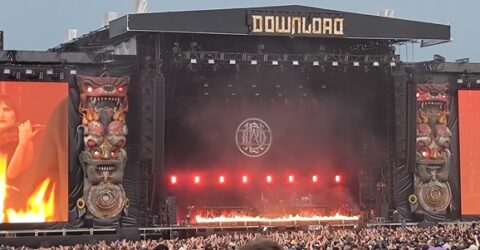Fed up with the Spotify algorithm? There are alternatives…
Amid growing consumer concerns around Spotify and its rivals, we look at alternatives to music streaming services

At the start of this decade, it looked as though music streaming services were going to dominate the music industry to the exclusion of all other platforms.
Yet a backlash is growing against Spotify, Tidal and their ilk.
In part, this is due to the increasingly unaffordable economic model these platforms are imposing on bands and artists.
The legendary number one battle between Oasis and Blur in 1995 earned the artists almost £2 million in total, yet an identical number of streams today would earn them just £2,000.
Being in a band is increasingly unsustainable in the streaming age, which is why the charts are now full of solo artists and one-off collaborations.
Most bands can only pay their bills through endless touring, leaving less time to record new music and increasing the risk of burnout or breakup.
There’s also growing discontent around the arbitrary nature of music streaming algorithms.
Even fans of djent metal or darkwave can expect Sabrina Carpenter’s irritatingly perky Espresso single to be played if they spend enough time on Spotify.
Not only is the latter being aggressively pushed by Carpenter’s record label, but the Spotify algorithm chooses songs based on all user behaviour rather than individual selections.
Rivals are faring no better. YouTube is now laced with unskippable video adverts, whose own quality has fallen a long way since the ad agency golden years of the late 20th century.
Tidal has faced a series of high-profile controversies, and its Individual membership now costs £10.99 per month – a high price to pay in a market saturated by streaming media services.
Fortunately, there are still a couple of well-established alternatives to music streaming services…
Buying digital music
Buying songs and albums digitally rather than streaming them over the internet gives you huge flexibility about where, when and for how long you listen to music.
You can copy MP3s onto as many devices as you like. They’re yours forever, accessible with no internet connection, and free to play a thousand times over with no intrusive adverts.
Amazon Prime Music used to be the default place to purchase digital MP3s, but its insistence on processing each track as a separate transaction and file download has blunted its appeal.
Nimbler rivals like 7Digital and Qobuz offer 24-bit high-res and FLAC files, as well as covering the outer reaches of niche musical tastes as well as the mainstream centre.
If you want to support artists directly, Bandcamp often donates 100 per cent of digital sales proceeds directly to artists, while its platform has long been synonymous with indie labels.
Apple iTunes has fallen behind Apple Music in terms of corporate priorities, but it has a huge collection of music on sale if you’re happy to play AAC files rather than MP3s.
There are also niche platforms specialising in particular genres of music. Dance fans should consider Bleep, especially since its prices haven’t risen as fast as some competitors.
Buying physical music
Youthful enthusiasm for old musical formats as alternatives to music streaming services has seen vinyl enjoy a renaissance in recent times, with Gen Z- now embracing audio cassettes.
We’d recommend compact discs, which don’t degrade in quality with each play – and which don’t need to be wound back into place with a pencil.
Second-hand CDs are being resold for pennies online, and even new releases may be affordably priced in independent music stores.
Although modern in-car infotainment systems rarely incorporate CD players, they remain a dependable medium around the home. External computer CD drives are also cheap to buy.
Compact discs offer a number of benefits over digital downloads or streams. Their packaging encompasses attractive artwork, liner notes and (in many cases) song lyrics.
Best of all, chronological track listings allow artists to present a collection of tunes as a coherent story, without algorithms abandoning the flow or context of successive songs.
It’s harder to discover to new artists when purchasing albums, but the likes of YouTube can still be used for this purpose, before buying music to ensure the artists receive fair pay…






